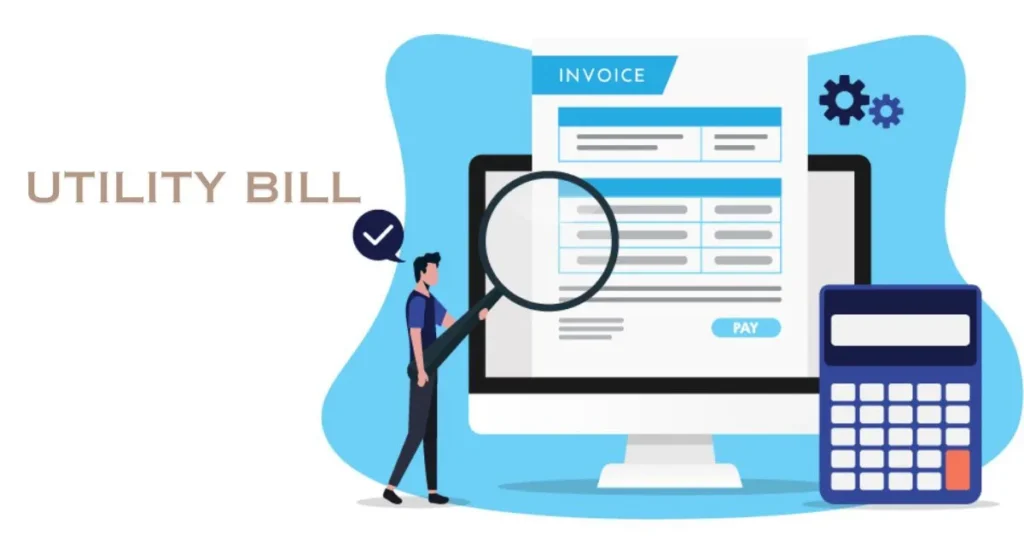Utility bills are a fact of life for anyone who owns or rents a home. They encompass the basic services needed for daily living, such as electricity, water, gas, sewage, and sometimes additional services like internet and waste disposal. Despite their commonplace nature, utility bills can often be confusing. This article aims to demystify utility bill by explaining what they cover, how they’re calculated, factors that affect costs, and tips for managing and reducing them.
What Are Utility Bills?
Utility bills are recurring invoices for essential services that keep a home functional and livable. They are typically issued monthly and cover a wide range of services, depending on your location and lifestyle. The most common utility bills include:
- Electricity: This bill covers the power used to operate electrical appliances, lighting, and heating or cooling systems. The amount charged is typically based on kilowatt-hours (kWh) consumed.
- Water: This bill reflects the amount of water used in your household for drinking, cooking, cleaning, and bathing. It may also include sewage charges, which cover the treatment and disposal of wastewater.
- Natural Gas: If you use gas for heating, cooking, or hot water, this bill reflects the amount consumed, usually measured in therms or cubic feet.
- Sewage: Separate from water, this bill covers the cost of treating and disposing of wastewater from your home.
- Trash and Recycling: This bill covers the collection and disposal of household waste, including recycling services.
In addition to these basic utilities, some people receive bills for other services like internet, cable television, and phone, though these are generally considered separate from core utilities.
How Are Utility Bills Calculated?
Utility bills are calculated based on the consumption of specific resources, with rates determined by the service provider or local government. Here’s a breakdown of how the most common utility bills are calculated:
- Electricity: Most electricity bills are calculated based on a tiered or flat rate structure, depending on the utility company. A tiered rate means the more electricity you use, the higher your rate per kilowatt-hour. A flat rate applies a consistent cost per unit regardless of usage. Additional charges may include service fees, taxes, and renewable energy surcharges.
- Water: Water bills are generally calculated based on gallons or cubic feet of water used. Some areas use tiered pricing to encourage conservation, while others have a flat rate. Additional charges may include sewage treatment, stormwater fees, and service fees.
- Natural Gas: Natural gas bills are calculated based on the volume of gas consumed, typically measured in therms or cubic feet. The rate per unit may vary depending on the season or market fluctuations. There may also be additional charges for delivery and infrastructure maintenance.
- Sewage: Sewage bills are often calculated based on water usage, assuming that most water entering a household eventually becomes wastewater. Some regions have separate rates for sewage and stormwater management.
- Trash and Recycling: Trash collection fees can vary based on the size of your trash bin, frequency of pickup, and additional services like recycling or yard waste collection.
Each utility bill may also include taxes, surcharges, or additional fees for infrastructure maintenance and service delivery.
Factors That Affect Utility Bills:
Utility bills can vary significantly from one household to another. Several factors influence the cost of your utility bills, including:
- Location: Utility rates differ based on where you live. Areas with higher energy or water costs will result in higher bills. Additionally, some regions offer discounts or incentives for energy-efficient practices.
- Seasonality: Utility bills often fluctuate with the seasons. For example, electricity bills may be higher in the summer due to air conditioning, while gas bills may increase in winter due to heating.
- Household Size: Larger households typically consume more electricity, water, and other utilities, leading to higher bills.
- Energy Efficiency: The energy efficiency of your home and appliances can significantly impact utility bills. Energy-efficient appliances and insulation can lower electricity and gas consumption.
- Lifestyle Choices: Your daily habits, such as how often you run appliances, take showers, or cook, can affect utility usage. Small changes in behavior can lead to significant savings.
Tips for Managing and Reducing Utility Bills:
If you’re concerned about high utility bill, there are several strategies you can employ to manage and reduce costs:
- Conduct an Energy Audit: An energy audit helps identify areas where you can improve energy efficiency. Many utility companies offer free or discounted energy audits to customers.
- Upgrade to Energy-Efficient Appliances: Investing in energy-efficient appliances can reduce electricity and water usage. Look for appliances with Energy Star ratings.
- Improve Home Insulation: Proper insulation helps maintain a consistent indoor temperature, reducing the need for heating and cooling.
- Use Smart Thermostats: Smart thermostats allow you to control your home’s temperature remotely and create schedules to reduce energy usage when you’re not home.
- Conserve Water: Fix leaks promptly, install low-flow fixtures, and use water-efficient appliances to reduce water bills.
- Switch to LED Lighting: LED bulbs use less energy and last longer than traditional incandescent bulbs.
- Reduce, Reuse, Recycle: By minimizing waste, you can reduce trash collection costs. Recycle whenever possible and consider composting organic waste.
- Negotiate with Utility Companies: In some cases, you can negotiate lower rates or payment plans with utility companies, especially if you’re facing financial hardship.
- Take Advantage of Rebates and Incentives: Many utility companies offer rebates for energy-efficient upgrades or solar installations. Be sure to research available incentives in your area.
Conclusion:
Utility bill are an essential part of maintaining a home, but they can sometimes be overwhelming. Understanding how utility bills are calculated, the factors that affect them, and strategies to reduce costs can help you take control of your household expenses. By implementing energy-efficient practices, making smart lifestyle choices, and exploring available incentives, you can lower your utility bills and create a more sustainable home environment.







